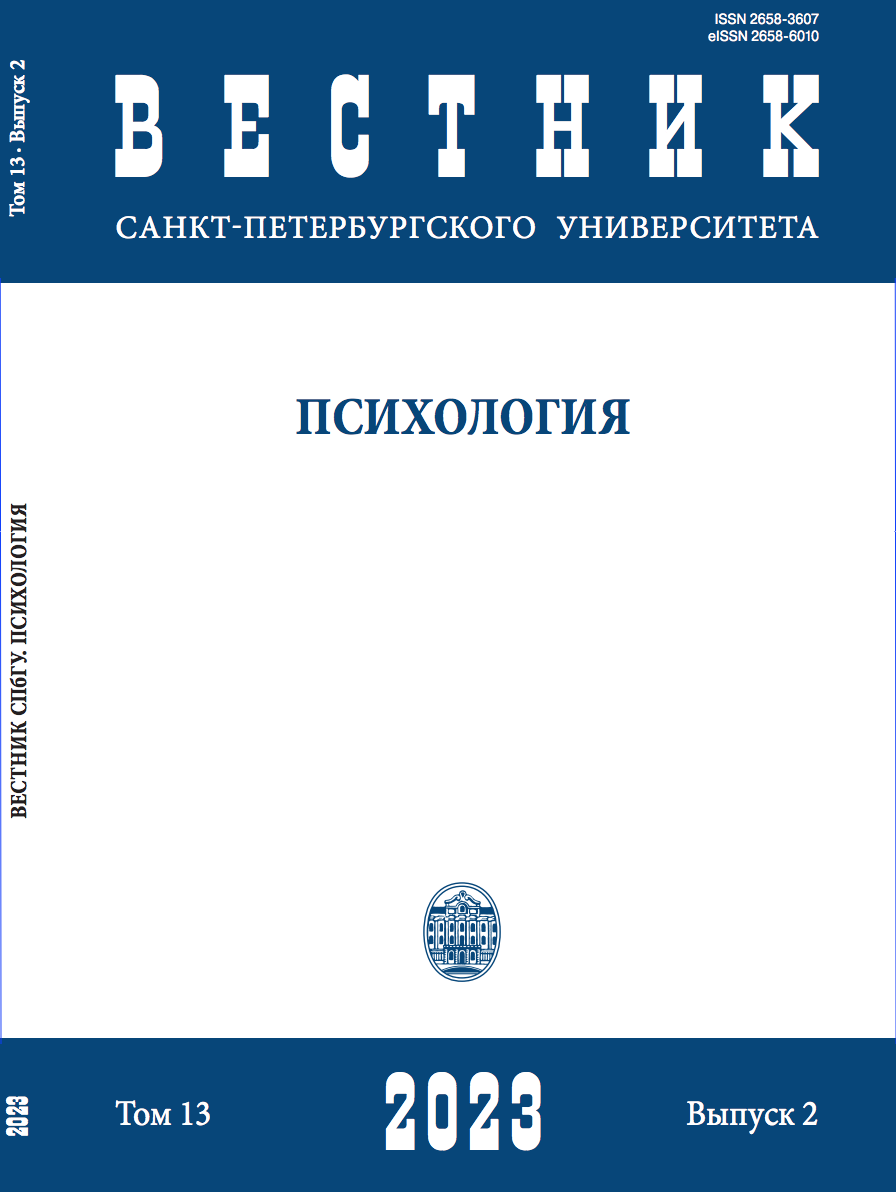Опыт переживания трансгендерного перехода
DOI:
https://doi.org/10.21638/spbu16.2023.206Аннотация
Предпринята попытка изучения переживаний трансгендерных людей в условиях критической жизненной ситуации (трансгендерного перехода). Исследование включало в себя проведение и анализ полуструктурированного интервью, а также сбор и анализ количественных данных с помощью авторского опросника, составленного на основе контент-анализа текстов интервью. В интервью приняли участие 10 трансгендерных людей (средний возраст 21,2 года), в опросе — 285 трансгендерных людей (средний возраст 21,21 года). Анализ феноменологии переживаний и последующая проверка математическими методами (иерархическая кластеризация и критерий U Манна — Уитни для независимых выборок) позволили выявить и описать два типа переживаний трансгендерных людей: «открытые к поиску себя» (81 человек) и «избегающие» (204 человека). «Открытые к поиску себя» трансгендерные люди чаще давали высокие оценки позитивным состояниям и эмоциям по поводу трансгендерного перехода, отмечали переживание общности с трансгендерными людьми. В процессе трансгендерного перехода продуцировались новые смыслы: познание, принятие и развитие себя; планирование жизни и признание важности построения целей будущего; профессиональное развитие. Семейная, партнерская и дружеская поддержка оценивалась ими как позитивные или благоприятные социальные факторы. «Избегающие» трансгендерные люди чаще отмечали негативные состояния и эмоции по поводу трансгендерного перехода и избегание коммуникации с людьми. Они выделяют переживания, связанные с сомнениями и оценкой правильности трансгендерного перехода, с волнением по поводу реакции окружающих на трансгендерный статус, с испытываемым чувством одиночества среди цисгендерных людей. Негативное отношение семьи, близких и окружающих, а также дискриминация в общественных местах рассматривались как мешающие трансгендерному переходу и жизни в целом. Данное исследование выступает в качестве реализации попытки феноменологического описания переживаний трансгендерных людей, сопровождающих трансгендерный переход, а также выявления различий в них.
Ключевые слова:
трансгендерность, трансгендерный переход, опыт, переживания, критическая жизненная ситуация
Скачивания
Библиографические ссылки
References
Загрузки
Опубликован
Как цитировать
Выпуск
Раздел
Лицензия
Статьи журнала «Вестник Санкт-Петербургского университета. Психология» находятся в открытом доступе и распространяются в соответствии с условиями Лицензионного Договора с Санкт-Петербургским государственным университетом, который бесплатно предоставляет авторам неограниченное распространение и самостоятельное архивирование.




